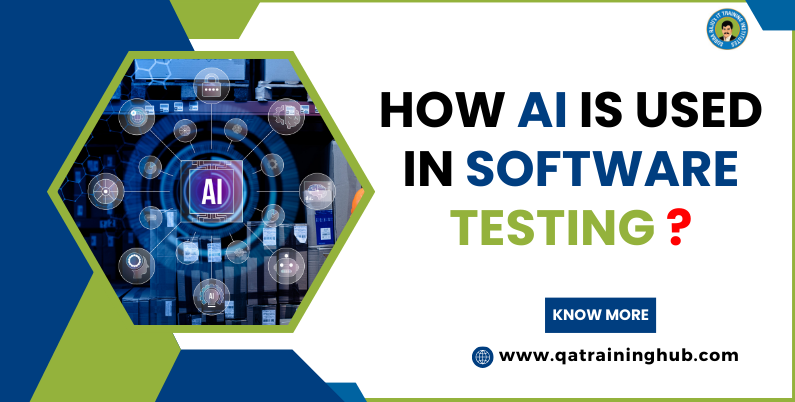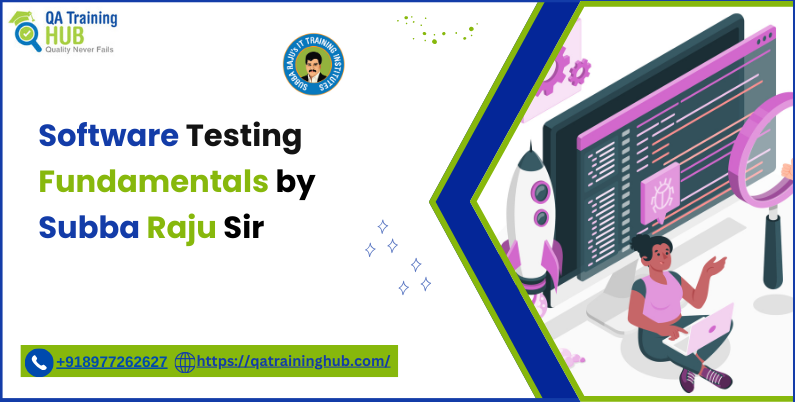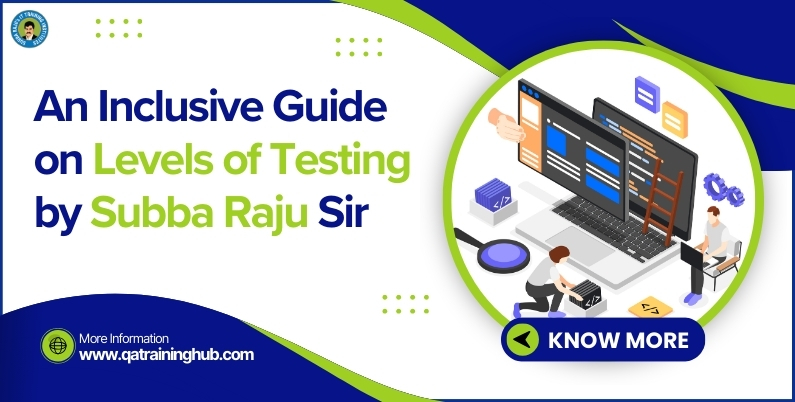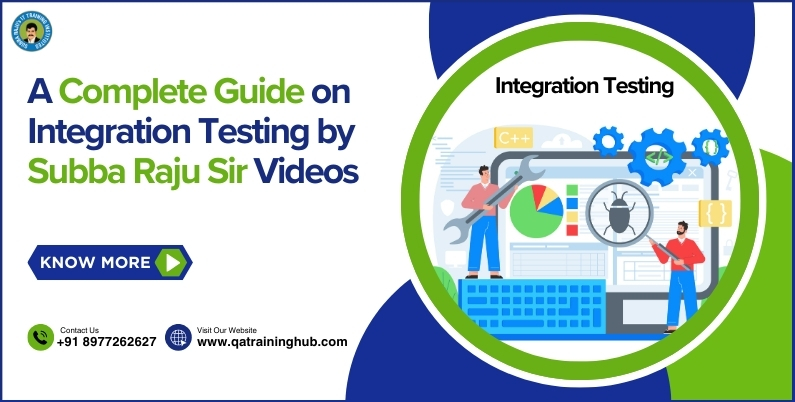
Exploring the Evolution: How AI is Revolutionising Software Testing
In software development, The role of Artificial Intelligence (AI) has become increasingly prominent. One area where AI is making significant progress is software testing. Traditionally, software testing has been a labor-intensive and time-consuming process, frequently prone to human error. However, with the advent of AI technologies, testing has transformed, enabling faster, more effective, and dependable software releases. In this article, we explore the impact of how AI is used in software testing, discussing its applications, benefits, challenges, and future prospects.
Introduction to AI in Software Testing:
Artificial Intelligence, with its ability to analyze vast amounts of data, detect patterns, and make predictions, is proving to be a game-changer in the field of software testing. By utilizing AI-powered tools and techniques, developers and QA teams can make testing smoother, identify defects more efficiently, and ultimately provide better software products to end-users.
The Evolution of AI in Software Testing:
The evolution of AI in software testing began with early attempts at test automation, employing basic scripts to automate repetitive testing tasks. However, traditional test automation faced challenges, particularly in managing dynamic and complex user interfaces.
With advancements in AI and machine learning algorithms, a new era of intelligent testing has emerged. AI-driven testing tools can now replicate human behavior, enabling them to interact with software applications in a more human-like manner. These tools can dynamically adapt to changes in the application’s user interface, making them ideal for testing modern web and mobile applications.
Key Applications of AI in Software Testing:
Test Case Generation: AI algorithms can automatically generate test cases by analysing requirements, code, and system behavior. This helps in identifying test scenarios that cover a wide range of use cases, including edge cases and boundary conditions.
Defect Prediction: AI techniques such as machine learning can analyze historical data, code changes, and testing metrics to predict potential defects in the software. By identifying high-risk areas, testers can focus their efforts on critical parts of the application, improving defect detection and resolution.
Automated Test Execution: AI-powered test automation tools can run test cases independently, simulating different user interactions and scenarios. These tools can also prioritize test cases based on their impact on the application, ensuring that critical functionalities are thoroughly tested.
Anomaly Detection: AI algorithms can examine application logs and system metrics to identify anomalies that might cause potential defects or performance problems. By consistently monitoring the application’s behavior in real time, AI-driven anomaly detection systems can notify developers of emerging issues before they impact end users.
User Behaviour Simulation: AI can simulate user behavior and system interactions to perform realistic load and performance testing. By generating virtual users and imitating real-world usage scenarios, AI-driven testing tools can identify performance limitations and optimize system performance.
Natural Language Processing (NLP) for Requirements Analysis: NLP algorithms can analyze natural language requirements documents and extract relevant test scenarios and acceptance criteria. This simplifies the test planning process and ensures that test cases accurately reflect the intended functionality of the software.
Benefits of AI in Software Testing:
Enhanced Test Coverage:
AI-driven testing techniques enhance test coverage by identifying complex scenarios and edge cases that are often overlooked in manual testing. By simulating real-world user actions and system behaviors, AI ensures thorough validation of software features across various platforms and environments.
Improved Accuracy and Efficiency:
Automation of repetitive testing tasks using AI eliminates human errors and speeds up the testing process. AI algorithms analyze vast datasets to identify patterns, anomalies, and potential defects, improving the accuracy of test results and decreasing false positives. By simplifying test execution and analysis, AI makes resource management more efficient and shortens release cycles.
Cost Reduction:
AI-driven testing lowers the overall cost of software testing by reducing manual effort, lowering risks, and preventing defects early in the SDLC. Automated test case generation, execution, and maintenance significantly reduce labor costs and eliminate the need for expensive testing infrastructure. Through AI utilization, organisations increase their return on investment in testing and manage resources efficiently.
Predictive Analytics:
AI allows for predictive analytics in software testing by predicting defects, estimating test efforts, and optimizing testing strategies. By examining historical test data and project metrics, AI algorithms identify trends, risks, and areas for improvement, empowering teams to make informed decisions. Predictive analytics improves test planning, resource allocation, and decision-making, ongoing continuous improvement in the testing process.
Challenges and Limitations of AI in Software Testing:
Data Quality and Availability:
AI algorithms depend on good quality and relevant data to train their models and provide precise predictions. Insufficient or biased data can result in inaccurate outcomes, compromising the effectiveness of AI-driven testing methods.. Ensuring data quality, diversity, and accessibility poses significant challenges for organizations adopting AI in testing.
Expertise and Skill Gap:
Implementing AI in software testing requires specialised expertise in machine learning, data science, and software engineering. The shortage of skilled professionals proficient in both testing and AI technologies hinders the broad adoption of AI-driven testing approaches. Closing this skills gap and enhancing the capabilities of existing QA teams are essential for successful AI integration in testing practices.
Interpretability and Explainability:
AI-driven testing methods often use complex algorithms and models that are difficult to understand and explain. Understanding how AI makes decisions and interpreting its recommendations is challenging for QA engineers and stakeholders. Ensuring transparency, accountability, and trustworthiness in AI-based testing systems is essential for encouraging their adoption and approval.
Overcoming Bias and Assumptions:
AI algorithms may exhibit bias and make incorrect assumptions based on the training data and underlying algorithms. Biassed predictions and recommendations can lead to less effective testing outcomes and weaken the integrity of testing processes. It’s crucial to identify and reduce bias in AI models through rigorous testing, validation, and algorithmic transparency is essential for ensuring fairness and reliability.
Future Trends and Opportunities:
AI-powered Autonomous Testing:
The advancement of AI-driven autonomous testing is set to transform software testing by introducing self-learning, adaptive testing systems. These frameworks utilize AI to observe how applications behave, recognize test scenarios, and carry out tests independently. Through ongoing learning from testing and user input, autonomous testing systems develop and enhance themselves over time, resulting in improved efficiency, coverage, and reliability in testing processes.
AI-driven DevOps and Continuous Testing:
Integrating AI with DevOps practices facilitates continuous testing across the SDLC, from development to deployment. AI-driven test automation, predictive analytics, and intelligent monitoring enable organisations to detect defects early, ensure seamless integration, and accelerate time-to-market. By embedding AI in CI/CD pipelines, organisations achieve greater agility, dependability, and creativity in software delivery.
Conclusion:
In conclusion, the integration of Artificial Intelligence (AI) in software testing marks a transformative shift in the Quality Assurance (QA). With AI-driven testing approaches, organisations can achieve exceptional efficiency, accuracy, and flexibility in ensuring the quality of their software products. From automated test case generation to predictive analytics and autonomous testing, AI empowers QA teams to simplify workflows, reduce risks, and deliver high-quality software at speed and scale.
In this article, we have explored the impact of AI and how AI is used in software testing, examining its applications, benefits, challenges, and future prospects. As organisations adopt AI-driven testing methods, they discover new opportunities to improve quality, accelerate delivery, and exceed customer expectations in an increasingly competitive marketplace. By harnessing the power of AI, organisations can handle the challenges of modern software development with confidence.
At QA TrainingHub, we understand the significant influence of AI on software testing and are dedicated to empowering individuals with the expertise and capabilities required to thrive in this changing environment. Our extensive training initiatives, interactive workshops, and expert guidance aim to provide QA professionals with the necessary skills and knowledge to leverage AI effectively and enhance quality standards in software development.
Join QA Training Hub today and begin on a journey towards mastering AI-powered software testing, ensuring your skills remain in high demand in an increasingly competitive industry. Together, let’s shape the future of software testing and drive excellence in software quality assurance.







